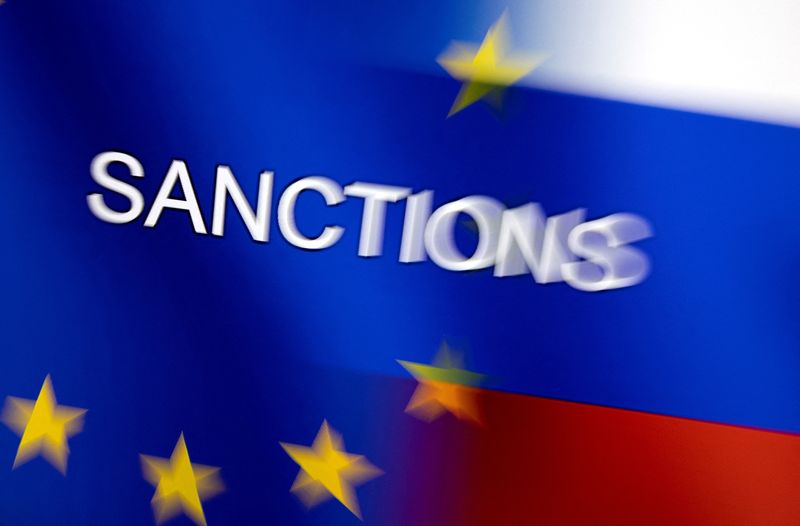By Gabriela Baczynska and Julia Payne
BRUSSELS (Reuters) - European Union leaders meeting later in October will demand "decisive progress" on using Russian assets frozen by sanctions to help Ukraine, according to their draft statement, addressing a matter that has been stuck for months.
The United States and Britain last month signalled support for an EU plan to tax windfall profits generated by frozen Russian sovereign assets to finance Ukraine as Kyiv battles a full-scale Russian invasion that started in February 2022.
Finance ministers of the Group of Seven (G7) industrialised countries meeting in Morocco on Thursday estimated $280 billion (266 billion euros) worth of such assets had been frozen, and expected more work in the coming months to find legally sound ways of using them to aid Ukraine.
EU members Germany and France are part of the G7 club, where the EU executive European Commission is also represented.
The EU's own work among its 27 member states on harnessing frozen Russian state assets for Ukraine has been repeatedly delayed due to legal concerns, among others, after the bloc's sanctions on private Russian wealth were challenged in courts.
The bloc's national leaders meeting for a summit in Brussels on Oct. 26-27 are due to call for "decisive progress... on the use of revenues from Russia's immobilised assets", according to their draft joint statement seen by Reuters on Friday.
Diplomats from EU countries are due to hold technical talks on the matter on Oct. 17. There was no immediate comment from the European Commission on when the Brussels-based executive would put forward a related legal proposal.
Belgium, an EU country but not a G7 member, said earlier this week it would spend 2.3 billion euros on supporting Ukraine that it expects to collect in 2023-24 taxes on Russian central bank assets immobilised on its soil.
Belgian clearing house Euroclear manages some 125 billion euros of frozen Russian central bank assets. The company had no comment on Friday.
An EU official said this week that EU talks on the windfall tax had failed to make progress for months in part to due objections from Belgium, which currently has sole discretion of what to do with tax revenue on swelling Euroclear profits.
An official from Belgium said the country was pushing for a G7 solution, explaining that an EU-only ban would not be effective as business would reroute from Euroclear to other international clearing houses free of such requirements.
Other clearing houses in Europe include Deutsche Boerse (ETR:DB1Gn)'s Eurex in Frankfurt and the London-based LCH, which handles the bulk of euro-denominated interest rate swaps even after Brexit.

LCH is a unit of the London Stock Exchange Group (LON:LSEG). Thomson Reuters (NYSE:TRI), the parent company of the Reuters news agency, holds a minority stake in LSEG.
(1 euro = $1.0544) ($1 = 0.9486 euros)